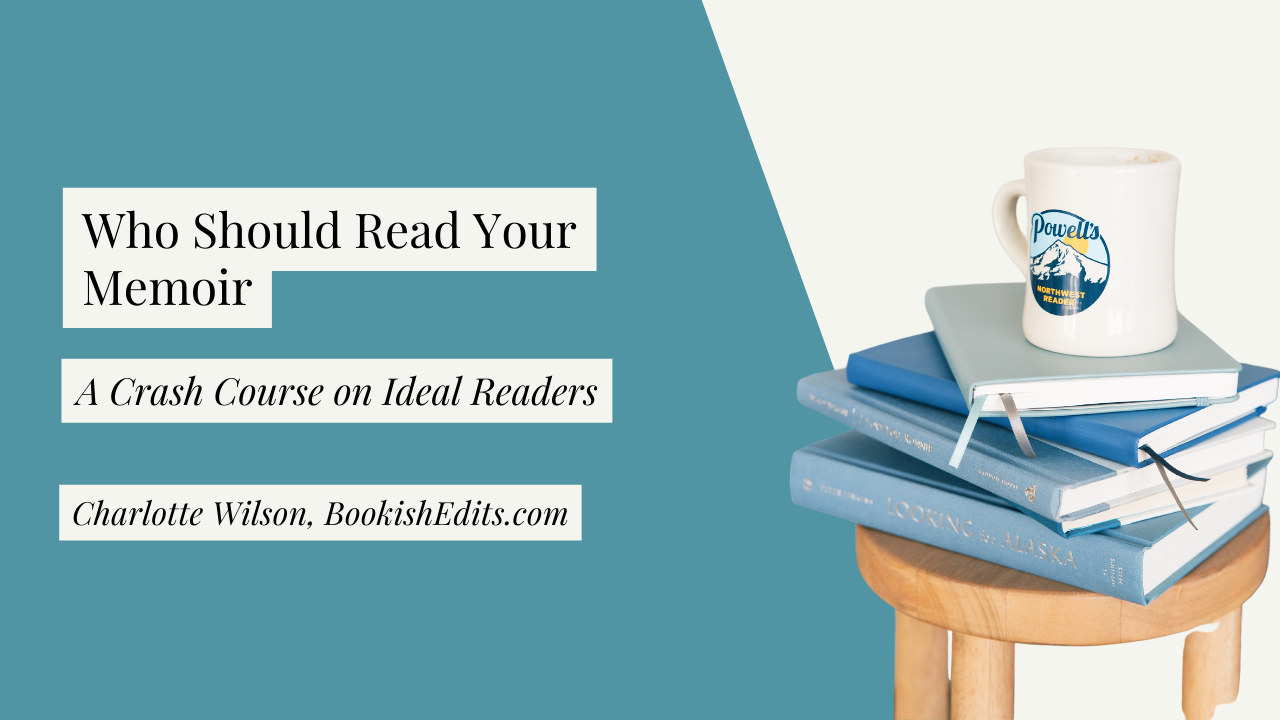Who Should Read Your Memoir?
I make up one-third of a three-person book club. (It’s the perfect size for this home-bodied introvert.) Over the past several years, we’ve come to know each other well. We know about each other’s families, jobs, hardships, and triumphs, and it’s come to be a treasured friendship group for me. We also know each other’s reading tastes. Rather than choosing one book to read and discuss it over drinks and a charcuterie board, we check in frequently over text and Marco Polo, update each other on what we’re reading, whenever we meet, we inevitably have overlapping reads to discuss.
We’ve created an ideal environment for book recommendations. I share my romance recs with Juliann and save my magical realism faves for Amy. They choose only the best thrillers to recommend to me. Not everyone is going to love every book, and we each do our best to press only books that we think each other will like (and warn away from books we likely won’t enjoy).
Your memoir will be the same way. You are not going to write a book that everyone will love. If you write for everyone, you write for no one (credit to Seth Godin for that one). The best way to write a book that readers will recommend to the right readers at book club is to craft an ideal reader. Knowing your ideal reader will focus your writing and voice, both attracting and repelling the right people.
As you craft your ideal reader, remember these guidelines:
Be specific.
Specificity is your friend when you’re crafting an ideal reader. The more you know about who they are, where they live, and what they do for a living, the more you’re be able to guide their reading experience.
Stay open-minded.
As you explore who your ideal reader might be, stay open to who they could be. Who will resonate with your story might surprise you, and that surprise could enhance your writing in the best of ways. Furthermore, your ideal reader might evolve as you write, shifting how you tell your story. Allow for that evolution and don’t chain yourself to a static ideal reader.
Take your time (but don’t dawdle).
Don’t rush the foundational work for writing. Ideally, you want to know who you’re writing for before you write (revisions might be more involved if you identify your ideal reader later in the process), but you also don’t want to use your ideal reader as a procrastination crutch. Remember that your ideal reader is a tool, not a taskmaster.
Stay creative.
Foundational work can (and should) be fun and creative. Think about all of the possible readers who could resonate with your book. Put them in conversation with each other, take them out to lunch, and pay attention to what these avatars have to tell you about your story. As you play around with ideal readers, your creativity will spark.
Some people will hate your book.
And they’re not your people. And if you going to have readers who hate your book, guess what? You’re also going to have readers who love it. You can’t write a resonant book by trying to please everybody. And because the writing and editing process usually takes some time, you won’t have to field grumpy readers for a while!
Someday there will be a book club, maybe similar to mine, that will pick up your book. And that reader will know exactly who else will love your story. I promise.


